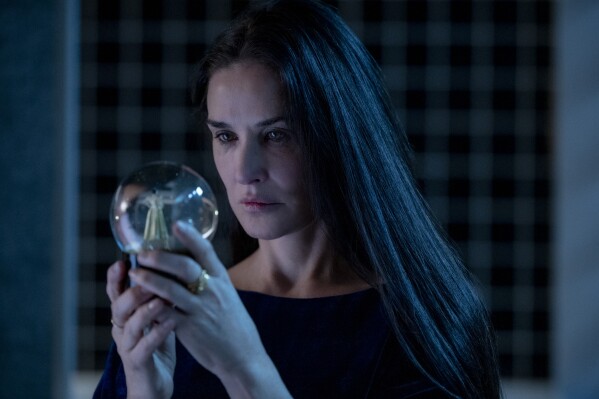For a play that plumbs the fathomless Godless tedium of existence, Beckett’s evasive 1952 masterpiece is surprisingly commercially resilient. Fifteen years ago Ian McKellen and Patrick Stewart starred as the two ragged tramps in this very same theatre, producing a West End-pleasing vaudevillian double act that proved a sell-out hit.
The play has had several major revivals since, to the point it’s almost becoming a safe theatrical bet. Hence James MacDonald’s revival with the less obvious, if no less magnetic star billing of Ben Whishaw and Lucian Msamati.
Performed with ludic clarity on a nuclear winter ridge of rock, a petrified bare-branched tree the only sign of life, MacDonald’s capacious revival offers no new radical insight. Rather its strength lies in its resistance to any specific reading while simultaneously appearing to contain many.
This is a Godot as spiritual allegory, as political parable, as absurdist tragic comedy and human cry in the wilderness, a production that seems to drag us too into its dreadful struggle against the dark. At one point Vladimir points out corpses in the distance and stares straight as us. We, the audience, are the charnel house.
Of course, a Godot stands or falls on the querulous intimacy of its Vladimir and Estragon. These two, dressed in an ill fitting assortment of tracksuits and combats - too small for Vladimir, too big for Estragon - are as mismatched in character as they are in physical form; Whishaw’s ballet dancer delicacy and fey will-o’-the-wisp cheer bounce against Msamati’s hulking fearful presence and jaded cynical wit.
Whishaw’s tremendous Vladimir is part man-child, part strident philosopher, part Pollyanna, his sparrow-like brightness barely concealing a desperate need to cling on to the certainty that Godot will arrive tomorrow, his long pianist hands forever madly gesticulating in hope. For his part Msamati’s buttoned up Estragon spends quite a lot of time with his head in his hands, his taciturn sulk not quite disguising the suggestion of some deep internal damage. The irritable tenderness between them is palpable.
And yet the yearning empty otherness encroaches continually onto their icy ridge. The play is far too untethered to accommodate easy parallels, yet the many references to beatings accumulate here with unsettling force. Estragon’s nightmares, the suppurating sore on his leg, the little boy whose brother is beaten by Godot, the wild hostile landscape itself, full of unnameable monstrous threat: the horrors are plentiful.
And then there’s Pozzo – the ghastly country squire played as an eerie shapeshifter by Jonathan Slinger and who whips his servant Lucky with boorish cruelty. Tom Edden’s Lucky meanwhile is a man seemingly composed entirely out of sunken eye sockets and straggly beard and whose ravings resemble the raddled attritional prophecies of a street-corner preacher.
The theatre itself is sometimes invoked as an overt metaphor in productions of Godot. It’s a much more implicit presence here; nonetheless Whishaw’s Vladimir talks and talks as though the act of speaking will somehow keep the abyss at bay. I speak therefore I am. And yet it’s words that start to slip their moorings in the end – the ability to accurately testify to what happened at any given point increasingly uncertain. Only at the end does his Vladimir finally crack. I reckon a good percentage of the audience will crack with him.
Until Dec 14. Tickets:020 7930 8800; trh.org.uk
Disclaimer: The copyright of this article belongs to the original author. Reposting this article is solely for the purpose of information dissemination and does not constitute any investment advice. If there is any infringement, please contact us immediately. We will make corrections or deletions as necessary. Thank you.




